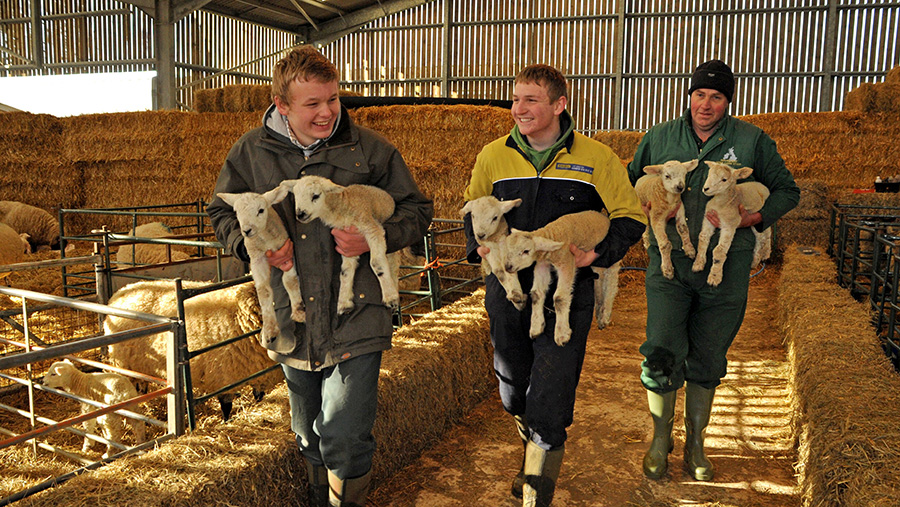Agriculture must do more to win over next generation workers
 © Solent News/REX/Shutterstock
© Solent News/REX/Shutterstock Young people aren’t hearing agriculture’s message on the sector’s careers and opportunities clearly enough and efforts must be redoubled to attract a skilled future workforce, say a group of industry leaders.
Land-based industries including agriculture are facing a mighty staffing challenge, with an estimated 60,000 new entrants needed to replace existing workers by 2020.
That’s according to the National Land Based College (NLBC), an employer-led organisation that brings together universities and colleges that offer agriculture apprenticeships and training.
See also: A beginner’s guide to careers in agriculture and farming
The group has outlined a four-point plan to usher in the next generation of land-based workers and improve the quality of their training:
- Champion the land-based sector as offering a professional and progressive career path
- Create new industry-recognised qualifications to equip workers with the skills employers are looking for
- Bring the industry together so employers can work closely with the government, colleges and awarding bodies to develop skills and qualifications
- Offer an online virtual college to act as a hub to facilitate digital and flexible learning, much like the Open University
The strategy aims to deliver a framework for intermediate and higher-level skills by linking land-based industries, including agriculture, land-based engineering and fisheries, with education.
See also: The A to Z of careers in agriculture
NLBC chairman Lord Curry of Kirkharle said: “We are gradually losing ground in terms of productivity [compared with other countries] and there are deterrents to young people getting into our sector. We need to raise our profile and attract more school leavers.”
Sharing innovation
Setting out his vision for the future of agriculture at an NLBC meeting in London yesterday (15 November), Defra secretary Michael Gove said improving skills of workers is vital to boosting productivity.
Mr Gove added that while the UK has world-class land-based higher education institutions, more needs to be done to link the pioneering work they do with worker training.
See also: What’s it like to be an arable foreman?
“We have been perhaps less good at sharing knowledge and spreading innovation and best practice across the sector than some other countries.
“We haven’t always been as good as we might in connecting innovation that occurs in [these] institutions with the training and on-going development of the farming sector overall.”
Trailblazers
Progress has already been made to introduce new “trailblazer” apprenticeship standards that are more relevant for employers and have more rigorous assessment.
These have already been created for the forestry sector and there are more of these new-era apprenticeships in the pipeline for the agriculture sector.
Geraint Richards, who was involved in bringing the new forestry trailblazer apprenticeships to fruition in the past few years, said more needs to be done to remove barriers that prevent people from working in the land-based sector.
See also: 20 essential job-hunting tips for the agriculture sector
“We’ve not been very good at working together to promote land-based sectors, so that means confusion rather than cohesion reigns.
“If a young person does feel the pull towards a career in our industry, they may not be helped or encouraged to pursue this by schools or parents.
“There is a lack of knowledge and awareness of courses and careers for a variety of work – we need to show people there is a career ladder.”
For more information on agriculture apprenticeships and training, visit the National Land Based College website.
